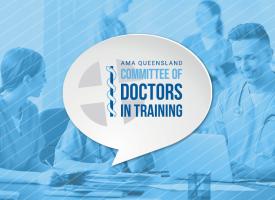‘Some improvement, more to do’ – Trainee doctors rate their training experience
The AMA’s second Specialist Experience Health Check shows that while specialist medical education and training in Australia has weathered COVID well, there’s room for improvement to help trainees sit and pass examinations to progress to fellowship.

The AMA’s second Specialist Experience Health Check shows that while specialist medical education and training in Australia has weathered COVID well, there’s room for improvement to help trainees sit and pass examinations to progress to fellowship.
The AMA’s health check is based on findings from the 2021 Medical Training Survey, released in February 2022.
Trainee doctors enrolled in a specialist training program who responded to the survey rated their medical college training an average ‘C’ across the board according to AMA analysis of survey data.
The health check shows that initiatives implemented by medical colleges have been successful in supporting trainees to progress through training during the pandemic, but no training program received an A-grade rating from trainees.
Chair of the AMA’s Council of Doctors in Training Dr Hannah Szewczyk said it was great to see improvements from the previous health check, with trainees reporting access to mental health support services up by 11 per cent and unpaid overtime down by 11 per cent on 2019 figures.
“However, trainees have told us that exam feedback is an area where they would like to see more done to support trainees pass on a next attempt if they have failed,” Dr Szewczyk said.
“While they reported exams reflecting curriculum as improving (67 per cent), feedback about exam performance is still rated poorly by trainees (34 per cent).
“They often don’t know why they’ve failed, and yet continue to study for the next exam hoping to get it right. Obviously, this has a huge impact on trainee health and wellbeing, along with the financial costs to re-sit an exam which can be high.
“With many trainees sitting high stakes one-off barrier exams, it’s time to explore other forms of assessment to augment trainee progression, such as work-based assessment, de-coupling examinations to allow progression and additional support and supervision.”
Dr Szewczyk said collaboration could be strengthened between specialist medical colleges and trainees, who can share examples of the policies and practices that supported them to progress through training and discuss how this could become usual practice moving forward.
“Trainees want more from their training, especially as training fees rise. A better training experience leads to better doctors and better patient care. We think there are lots of opportunities to work collaboratively and share what is working in terms of exam feedback so improvements can be made.”
The AMA is encouraging all trainees to take this year’s Medical Training Survey which opened on 1 August and closes on 30 September. The development of the survey was led by the AMA’s Council of Doctors in Training.
AMA President Professor Steve Robson said trainees should be well represented in medical college governance and education structures and be consulted with and listened to as Colleges develop and act to successfully provide a better trainee experience.
“Our aim is to shift the trainee experience from a C to an A, and we can do this moving forward, working together.
“The survey is doing its job, with data getting stronger every year. Having data drives improvements as we can see in the AMA’s comparison to the results of the 2019 inaugural survey.
“Trainees can do the survey when they renew their registration with a personal link popping up on renewal. If trainees miss the pop up they can find a link in their Ahpra confirmation of registration email,” Professor Robson said.



